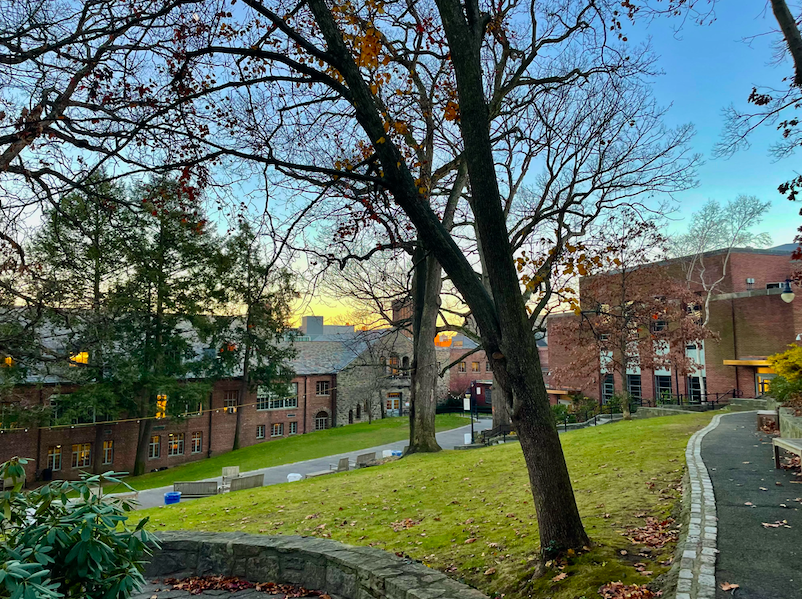On Thursday, December 2nd, the upper school had the opportunity to listen to honest personal stories about mental health from students and faculty during the 4th annual Mental Health Assembly. For many, the experience was extremely emotional and enlightening.
I spoke with a two-year Mental Health Club leader Emma Friedman (V) about the process of planning and bringing the assembly together. She explained that the planning was many months in the making. Given the restriction to two separate assemblies for upperclassmen and underclassmen due to COVID, there was an added challenge of making the assembly shorter. “We started in about September and we had to look at the two different assemblies of 35 minute time slots,” Friedman said.
“Over the course of October and November we sent out a form to the whole school asking if anyone was interested in speaking and giving a testimonial of their story or reading someone else’s story,” she added.
Speaker selection was a very thoughtful process that took a lot of consideration. “The psychologists were deciding what could be shared in terms of the school’s fragility and mental health. The leaders themselves didn’t really have a role [in selecting speakers] because that was up to the psychologists and as they are the professionals it was within their roles to decide what was okay and what was not,” Friedman explained.
Speakers covered several topics including but not limited to experiences with Obsessive Compulsive Disorder (OCD), Anxiety, Depression and Post-Traumatic Stress Disorder (PTSD). Audience member Paulina Woods (V) shared her thoughts on the speakers and assembly. “I thought they gave an extremely wide range of perspectives”
Friedman shared her opinion on why the assembly is important to the community. “The idea is to continue the conversation and widen the range of what is discussed.”
Audience members noted that the layout of the assembly as a place to share stories gave room for sincere storytelling and deep understanding of mental health. “I thought it was a very well-planned assembly. I think it’s good to acknowledge the courage and bravery for a lot of those students to speak,” said Sarah Abenante (V)
Friedman felt similarly, stating “I thought the speakers were brilliant. It took a lot of courage to stand up there and share their stories.”
“Having gone to the school for so many years, it’s really hard to speak in front of so many people and it was a really admirable thing to do,” she added.
This year’s assembly has received unwavering support and love from the community. Friedman feels that the assembly was successful in pushing the club’s mission of ending mental health stigma, but the work is far from over. “For a while the goal of the mental health club was to destroy stigma in the Fieldston community and the greater community in our nation. In the past few years, the stigma doesn’t seem to be as prevalent as it used to be. However, the awareness appears to mostly surround anxiety and depression, while there is still a ton of stigma around other mental disorders. For example, Schizophrenia or bipolar disorder. In the future our plan is to move outward and also touch on other issues, such as perhaps sexual assault and eating disorders.”
Friedman ended our interview saying the assembly “gave [her] a whole new outlook on student and faculty mental health.” This statement rings true across the Upper School, and the assembly certainly inspired community members to share their stories and help end the stigma.






